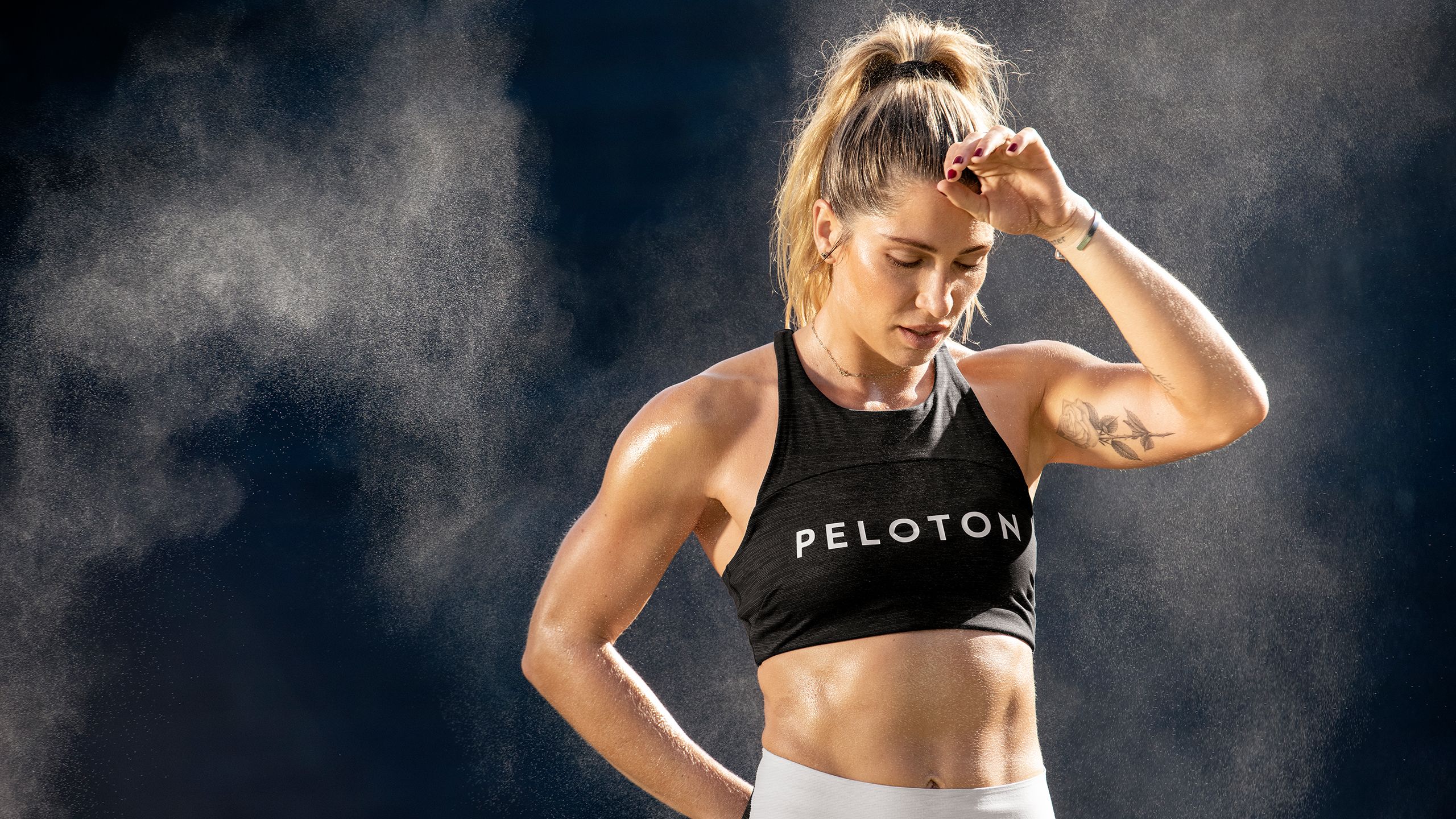Whether you’re exercising outdoors because you want to or you have to, you’re doing something beneficial for your body and health. One of the best things you can do for your skin, however, is to protect it before you start. Sunscreen might be a step you’re tempted to skip, especially on a cloudy day, but here’s why you shouldn’t.
Exposure adds up
It’s not just the sunny days you have to worry about. The sun’s rays penetrate through clouds and reflect off of concrete, sand, water and snow, so your skin is exposed to them on a daily basis. “By working out outdoors, we are doing wonderful things for our bodies, however, because sun damage is a cumulative effect, we are also increasing our risk for skin cancer, wrinkles and discoloration,” says board-certified dermatologist and Peloton Member Dr. Brooke Jackson (#skinwhisperer).
“Every exposure adds up,” says North Carolina-based Dr. Jackson, who has run 10 marathons and is writing a skincare book for runners. “Daily sunscreen use should become a habit, just like brushing your teeth.” For the best protection, look for a broad-spectrum sunscreen that protects against damage from UVA and UVB rays.
There IS a formula for everyone
With so many options available, there is no reason to skip sunscreen, no matter how long or short your workout is. The most common pushbacks Dr. Jackson hears from patients are that sunscreen stings their eyes when they sweat and that it is too sticky. To address the first issue, she suggests wearing a hat or visor to protect your forehead and sunglasses to protect your eyes, and then apply sunscreen from the cheeks down.
To people saying sunscreen is too sticky, she recommends a lightweight product, like a sport block--Neutrogena Cool Dry Sport is on my counter,” she says. If you opt for a sunscreen spray, be sure to rub the droplets together after applying “to connect the dots,” she advises.
Those who hit the water for their workouts often have concerns about potentially harmful ingredients in their sunscreens. Forward-thinking brands are coming through with better solutions, often labeled as reef safe. “The environment is the first thing I think about when choosing a sunscreen,” says Peloton instructor and avid surfer, runner and golfer Selena Samuela. “Many sunscreens can be very harmful to the environment, especially marine life, so much so that Hawaii has actually banned products containing oxybenzone, octinoxate and other harmful chemicals.”
The former Hawaii resident recommends sunscreen from Stream2Sea, a brand dedicated to sustainability, all the way down to the packaging, which she uses when surfing and running. (“It’s biodegradable. It’s made with minerals. It’s easy to get,” she says.) Mineral sunscreens are also a good choice for people with sensitive skin.
Badger Clear Zinc Sport Sunscreen in a tin is another one of Samuela’s top picks. “I make my partner, Matt, pack it in his golf bag to reapply on the course,” she says. “I also have a Tula sunscreen someone recently gave me to try, and I really dig it. I keep it in my golf bag.”
In the end, says Dr. Jackson, “The best sunscreen is the one you will use.”

Tailor your protection to your activity
Extended sweat sessions and water workouts require sunscreen reapplication, so don’t leave home without it. “Sunscreen, regardless of its type, should be reapplied every 2-3 hours because it breaks down in an effort to protect you,” says Dr. Jackson. “If you are doing a long run or ride outdoors, you need to carry something with you. Sticks are perfect, portable and can be easily reapplied.”
Samuela echoes the importance of changing up your sunscreen routine based on what you’re doing and where. “If I’m surfing in Hawaii and it’s mid-day, I always put an extra layer of zinc on my nose and cheekbones” she says. And the same goes for protective clothing. “Here in the northeast, it doesn’t really get warm enough that I ever take off a long-sleeve top for surfing, so I’m not as strict when I surf here.” When it comes to golf, she says, “When you’re out there for four hours for a full round it’s important to remember to reapply!”
Apply liberally and often
When applying sunscreen, Dr. Jackson recommends using an ounce (a full shot glass) to cover all body parts exposed when you’re wearing a t-shirt and shorts. “If you’re using it property, an 8 oz tube should be gone after a weekend at the beach!” she says.
Don’t forget to apply sunscreen to your lips, ears and back of your neck, which are often overlooked. “To combine Alex’s and Christine’s sign-offs,” she says, “To feel good and look good, I will do better because I can, I will, I do wear sunscreen.”
Taking a couple minutes to apply sunscreen before you work out could also improve your performance. “If you don’t do it,” says Samuela, “in the back of your mind you’ll be thinking, ‘I should have put sunscreen on’ rather than, ‘Heck yeah, I’m crushing this workout! And I was such a champ to put sunscreen on before heading out!’”
